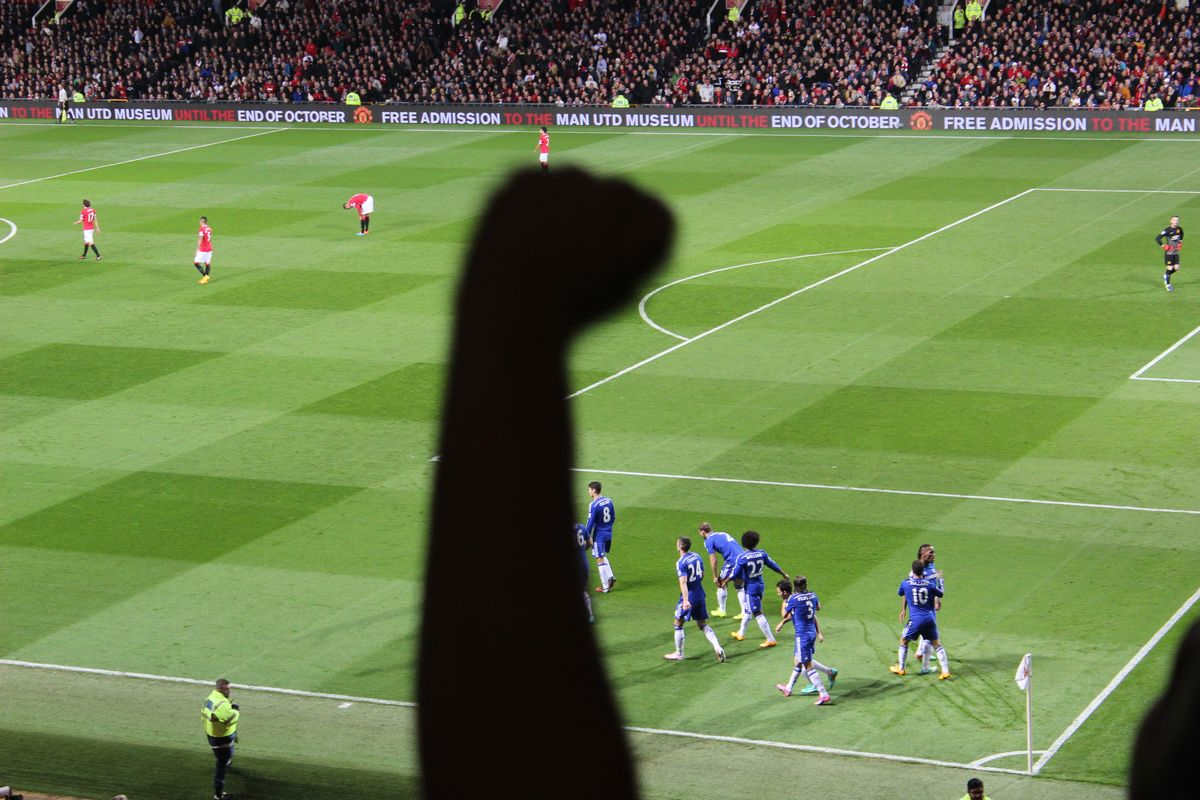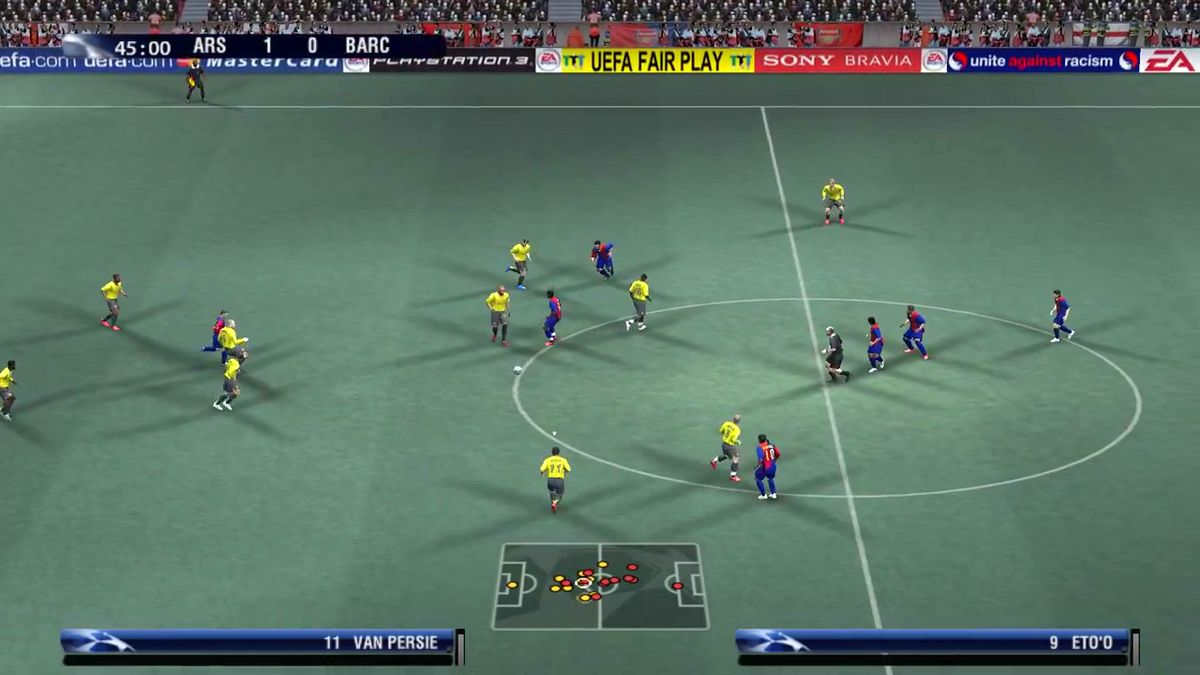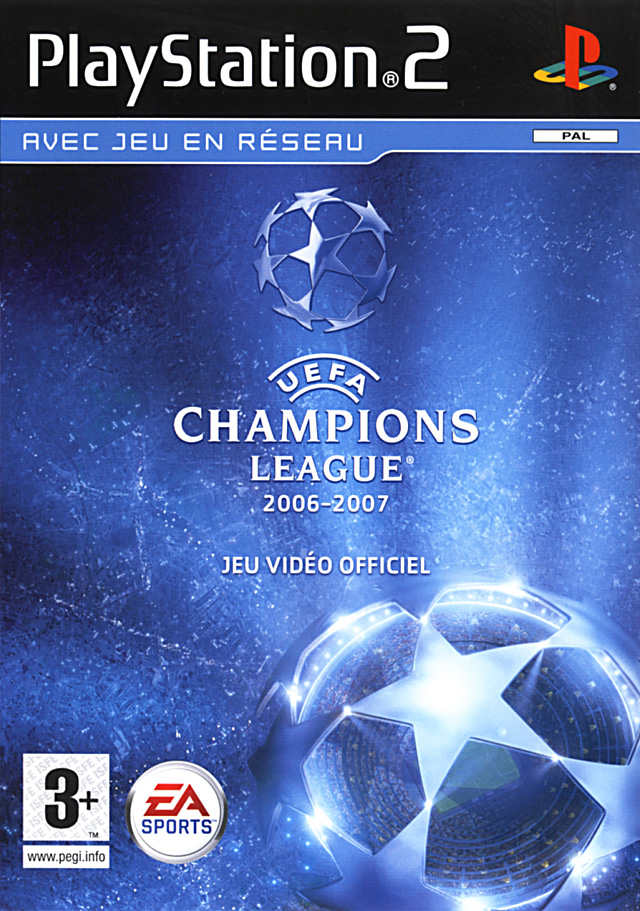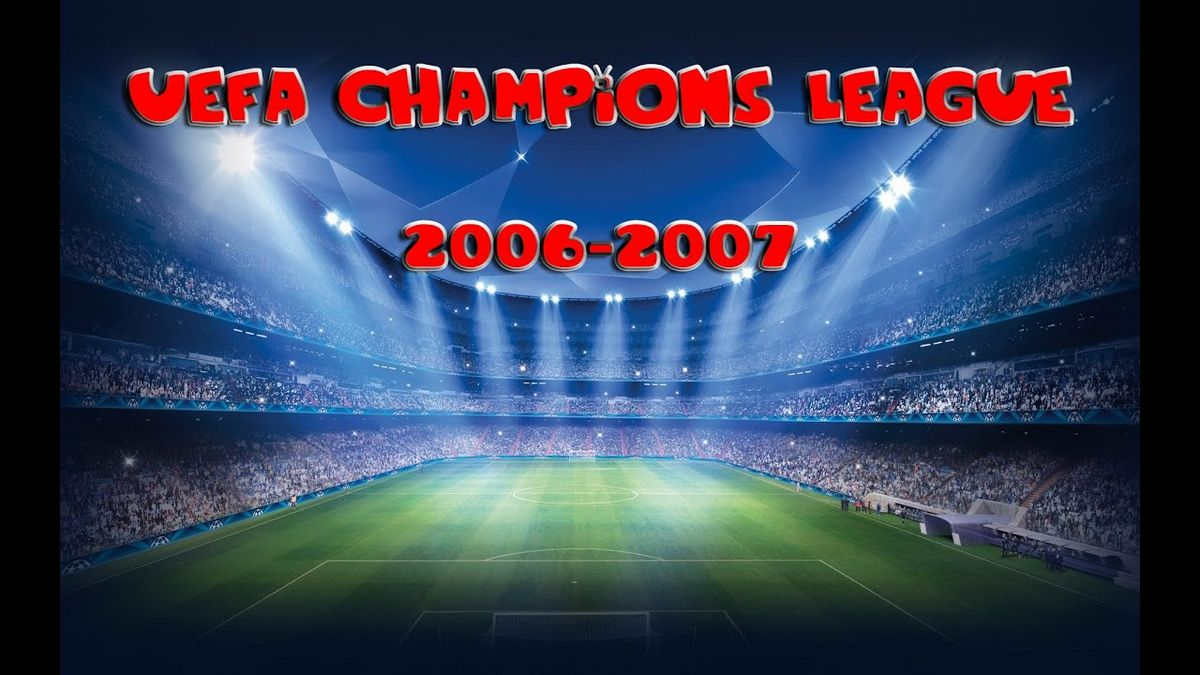The UEFA Champions League is one of the most prestigious club competitions in world football. Each year, clubs from across Europe compete to be crowned champions of the continent. The 2006-2007 edition of the competition was no different, with some of the biggest names in European football battling it out for glory.
This particular season saw a number of interesting storylines develop throughout the tournament. Defending champions Barcelona were looking to retain their title, while AC Milan were hoping to make amends for their defeat in the final two years earlier. Meanwhile, English giants Manchester United and Liverpool also had high hopes for success.

Throughout this article, we will delve deep into this memorable edition of the UEFA Champions League and examine how each team performed along with highlighting some key moments that defined this incredible tournament. From dramatic late winners to stunning individual performances, the 2006-2007 competition had it all and continues to hold a special place in footballing history.
- The history and significance of the UEFA Champions League: A brief overview of the competition’s inception, its evolution over time, and why it is considered to be one of the most prestigious football tournaments in the world
- An analysis of key teams and players from the 2006-2007 season: This section could cover some of the top teams participating that season (e.g., AC Milan, Liverpool FC), as well as standout individual performers like Kaka and Lionel Messi
- Tactics and strategies employed by successful teams in 2006-2007: Fans who are interested in learning about football tactics might appreciate an article that delves into how certain teams approached matches during this particular campaign
- Iconic moments from throughout the tournament: Highlighting memorable goals, saves, or other significant events (like red card incidents) can help readers understand what made this year’s tournament special
- Comparing modern-day UEFA Champions League competitions to those from years past: How has gameplay evolved since 2006-07? Are there any trends or changes that have taken place over time which make these earlier seasons feel especially unique?
- Interviews with retired players who participated in the competition back then: Gathering quotes or anecdotes from former professionals like Ronaldinho or Steven Gerrard could provide valuable insights into what competing at such a high level was really like for them
- Examining controversies surrounding certain games or outcomes within this season’s schedule: Were there any particularly contentious moments during matches that aroused controversy among fans? If so, diving deep into these issues could add some complexity to a piece on this topic
- The impact of media coverage on both fans’ experience and team performance throughout 06/07 season: Finally, looking at how different forms of media may have influenced people’s perceptions of certain clubs/players -and even contributed to their success on field- adds another level interest when exploring game dynamics
The history and significance of the UEFA Champions League: A brief overview of the competition’s inception, its evolution over time, and why it is considered to be one of the most prestigious football tournaments in the world
It is an annual tournament featuring the top clubs from across Europe, with teams qualifying based on their performance in their respective domestic leagues. The competition has evolved significantly over time, with changes to its format and rules reflecting the changing landscape of European football.
Initially known as the European Cup, the first edition of this tournament featured only 16 teams. Since then, it has grown considerably to include up to 78 participating clubs each season. As one of the most prestigious football tournaments in the world, it offers significant financial rewards for participating teams while providing fans with some of the most thrilling matches and moments in football history.
Over time, various rule changes have been introduced to make sure that fair play remains at the heart of this tournament. In recent years there have been debates around whether or not these rules remain effective against emerging threats such as doping and match-fixing.
Despite these challenges, however, there’s no denying that UEFA Champions League continues to be an incredibly important institution within European (and global) football culture. With millions tuning into watch every year – both live and online – this is much more than just a sporting event: it’s a celebration of passion and dedication to excellence that transcends borders and cultures alike.
An analysis of key teams and players from the 2006-2007 season: This section could cover some of the top teams participating that season (e.g., AC Milan, Liverpool FC), as well as standout individual performers like Kaka and Lionel Messi
One team that stood out during this season was AC Milan. The Italian giants had an impressive run in the competition, reaching the final and facing off against Liverpool FC. Their performance throughout the tournament can be attributed to their star players such as Kaka and Filippo Inzaghi who were vital to their success.
Kaka’s performances for AC Milan during the 2006-2007 season were nothing short of outstanding. He scored ten goals in twelve games and provided numerous assists for his teammates. His creativity on the ball, exceptional dribbling skills, and accurate finishing made him one of the standout performers in this campaign. Similarly, Filippo Inzaghi also played a crucial role in helping AC Milan reach the final with his clinical finishing abilities.
Liverpool FC also had some key players who shone bright during this competition. Steven Gerrard was instrumental for Liverpool throughout this campaign contributing eight goals and leading them from midfield with his trademark energy and determination. Another player that stood out was Dirk Kuyt whose work rate proved invaluable on both sides of the pitch providing much-needed cover defensively while scoring four times over eleven appearances.
In conclusion, The 2006-07 UEFA Champions League saw some truly remarkable performances by both individuals and teams alike; however, it is hard not to recognize AC Milan as they dominated most of their competitors thanks to players like Kaka or Inzaghi making them one of Europe’s best at that time along with other star performers like Lionel Messi from Barcelona who despite being eliminated early still managed an incredible six-goal haul before bowing out prematurely due to injury allowing others like Chelsea’s Didier Drogba or Manchester United’s Cristiano Ronaldo chances at glory later on down the line as these stars showed why they are among footballs greatest names even today!
Tactics and strategies employed by successful teams in 2006-2007: Fans who are interested in learning about football tactics might appreciate an article that delves into how certain teams approached matches during this particular campaign
One key approach embraced by many sides was the use of a pressing game, where opposing players were relentlessly pursued and harassed whenever they had possession.
This tactic proved particularly effective for Liverpool, who went on to win the competition that season. Their high-intensity pressing style allowed them to quickly regain possession and launch counterattacks with devastating efficiency. Another popular strategy employed during this campaign was the use of wing play, where teams looked to exploit spaces out wide in order to create opportunities through crosses into the box.
Manchester United were one side that used this approach effectively, with wingers Cristiano Ronaldo and Ryan Giggs both instrumental in their success that year. Additionally, a number of teams placed significant emphasis on defensive solidity as part of their overall strategy; Italian giants AC Milan being an excellent example here.
By remaining compact at the back and minimizing errors or lapses in concentration, these sides were able to frustrate opposition attackers whilst also providing a platform from which they could build attacking moves themselves. Ultimately, it was those teams who combined different tactical approaches successfully – such as Liverpool’s pressing game coupled with clinical finishing up front – who emerged victorious during what remains one of the most exciting UEFA Champions League campaigns ever witnessed.
Iconic moments from throughout the tournament: Highlighting memorable goals, saves, or other significant events (like red card incidents) can help readers understand what made this year’s tournament special
One of the defining moments came in the final between AC Milan and Liverpool, where Filippo Inzaghi scored two goals to lead AC Milan to a 2-1 victory over their English counterparts. Inzaghi’s second goal was particularly remarkable as he showed great composure and control before slotting past Liverpool goalkeeper Pepe Reina.
Another memorable moment from this tournament was Chelsea’s dramatic late comeback against FC Barcelona in the semi-final second leg. Trailing by two goals on aggregate and down to ten men, Chelsea staged an incredible fightback to win 3-2 on aggregate. Frank Lampard’s stunning equalizer will forever be etched in fans’ memories as it demonstrated his clinical finishing ability.
Furthermore, there were also significant red card incidents that shaped this year’s UEFA Champions League competition. One such incident occurred during Arsenal’s match against PSV Eindhoven when Dutch defender Philippe Senderos received two yellow cards within three minutes for reckless tackles, leading to his dismissal from the game.
Overall, these iconic moments made the UEFA Champions League 2006-2007 an unforgettable spectacle for football enthusiasts worldwide. These events showcased players’ exceptional skills and dedication while highlighting how discipline plays a crucial role in shaping outcomes at this level of competition.
Comparing modern-day UEFA Champions League competitions to those from years past: How has gameplay evolved since 2006-07? Are there any trends or changes that have taken place over time which make these earlier seasons feel especially unique?
The gameplay of modern-day UEFA Champions League competitions is vastly different from those of years past, particularly when it comes to tactics and team formations.
In recent years, teams have become more tactical in their approach to the game, employing a variety of formations designed to maximize their strengths and exploit weaknesses in their opponents’ play. Additionally, there has been an increased emphasis on physical fitness and conditioning among players, as well as a greater focus on data analysis to gain insights into opposing teams’ playstyles.
Compared to the 2006-07 season, today’s games feature higher levels of technical skill from players across all positions. Teams are also utilizing wider playing areas due to changes in pitch dimensions that allow for faster-paced gameplay. There has also been a shift towards greater attacking intent rather than relying solely on defensive strategies.
Overall, while there may be some unique characteristics that make earlier seasons stand out (such as legendary players or surprising upsets), the evolution of the sport means that fans can expect increasingly exciting matches featuring top-quality football talent showcasing advanced tactical systems and dynamic individual performances.
Interviews with retired players who participated in the competition back then: Gathering quotes or anecdotes from former professionals like Ronaldinho or Steven Gerrard could provide valuable insights into what competing at such a high level was really like for them
The UEFA Champions League is undoubtedly one of the most prestigious club competitions in world football, and being able to speak directly with former professionals like Ronaldinho or Steven Gerrard would offer a rare glimpse into the challenges and triumphs they faced during their playing careers.

For example, hearing anecdotes about how certain teams prepared for matches or revealing insights into specific tactics that were used on the pitch could help paint a more detailed picture of this particular competition. Additionally, speaking with retired players about their personal experiences competing in high-pressure situations could reveal key factors that contributed to their success (or failure) on the field.
Ultimately, gathering quotes from former professionals can add depth and nuance to any discussion surrounding higher-level football competitions like the UEFA Champions League. It’s not just about analyzing statistics or dissecting plays; hearing firsthand accounts of what it was like to be part of these historic events can help fans truly appreciate all facets of this beautiful game.
Examining controversies surrounding certain games or outcomes within this season’s schedule: Were there any particularly contentious moments during matches that aroused controversy among fans? If so, diving deep into these issues could add some complexity to a piece on this topic
One of the most notable incidents occurred during the quarter-final match between AC Milan and Bayern Munich, which ended in a 2-2 draw. Milan’s second goal sparked controversy when it appeared that Bayern goalkeeper Oliver Kahn had been fouled by Milan striker Filippo Inzaghi prior to the goal being scored. Despite protests from Bayern players and fans, the goal was allowed to stand.
Another controversial moment came during the semi-final match between Chelsea and Liverpool, which ended in a thrilling 4-4 draw with Liverpool advancing on aggregate goals. The game was marred by several contentious decisions, including a disallowed Chelsea goal early on in the match due to an alleged offside position, as well as two penalty calls – one for each team – that were hotly debated among fans and pundits alike.
Finally, there was controversy surrounding Manchester United’s progression to the final after they defeated Barcelona in the semi-finals. Many Barcelona supporters felt aggrieved over several refereeing decisions throughout both legs of their tie against Manchester United, feeling that their team had been denied clear penalties while United benefitted from questionable calls by officials. These controversies added an extra layer of drama and intrigue to what was already an incredibly exciting tournament.
The impact of media coverage on both fans’ experience and team performance throughout 06/07 season: Finally, looking at how different forms of media may have influenced people’s perceptions of certain clubs/players -and even contributed to their success on field- adds another level interest when exploring game dynamics
The media has a significant influence on how fans perceive their favorite teams and players, as well as shaping public opinion about certain clubs and athletes. The way a match is presented in the media can either enhance or diminish the mood of supporters, which can ultimately affect team performance.

Moreover, media coverage plays an essential role in building hype around games, increasing viewership and fan engagement. This translates into financial gains for both clubs and broadcasters alike. Therefore it’s not surprising that certain teams are given more airtime than others to maximize revenue streams.
Furthermore, different forms of media may have influenced people’s perceptions of specific clubs/players contributing to their success on field by portraying them positively while presenting their rivals negatively leading up to crucial matches. As such; game dynamics play a significant role in determining the outcome of games while giving sports journalists fodder for intriguing news stories long after the final whistle has blown.

In conclusion, UEFA Champions League 2006-2007 was heavily shaped by how various forms of media covered it – from pre-match interviews with coaches to post-game analysis by pundits – all impacted upon both fans’ experiences watching games unfold before them as well as influencing club performances throughout this exciting season!
In conclusion, the 2006-2007 UEFA Champions League season was one of the most memorable and exciting seasons in recent memory. From start to finish, fans were treated to some truly incredible performances from some of Europe’s best clubs. The competition saw Manchester United emerge as champions for the third time in their history after a hard-fought final against Chelsea.
The tournament showcased some of the finest footballing talents on display and provided us with numerous unforgettable moments that will live long in the memory. The likes of Lionel Messi, Cristiano Ronaldo, Kaka, Didier Drogba and Frank Lampard all dazzled fans with their individual brilliance throughout this campaign.
From an organizational standpoint, UEFA can be proud of how they managed this tournament; it was well-run and delivered an exceptional product for fans around the world. Moreover, it demonstrated why European club football is considered by many to be among the best leagues globally.
Overall, we were privileged to witness such an outstanding event that showcased everything that is great about European club football. Fans can now look forward eagerly to what promises to be another thrilling edition next year where once again we’ll see elite teams battling it out for continental glory!
Read More:- Experience the Thrill of College Football with Game NCAA Football 2005! (69 characters).
- Race to the Top with Midnight Club 3: DUB Edition Remix – A Game Changer!.
- Champions: Return to Arms – Conquer the Battlegrounds and Claim Your Victory in this Epic Game!.
- Master the Challenge with Pokemon Puzzle League – The Ultimate Gaming Experience!.
- Get Ahead with Winning Eleven: Pro Evolution Soccer 2007 – The Ultimate Game for Football Fans!.
- Experience the Thrill of Street Football with NFL Street 3 – The Ultimate Game for Fans!.
- Experience the Thrill of FIFA Soccer 2004: The Ultimate Gaming Experience!.